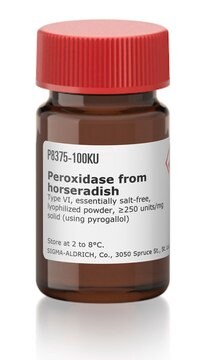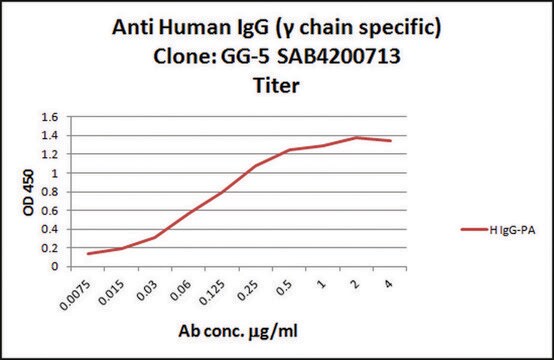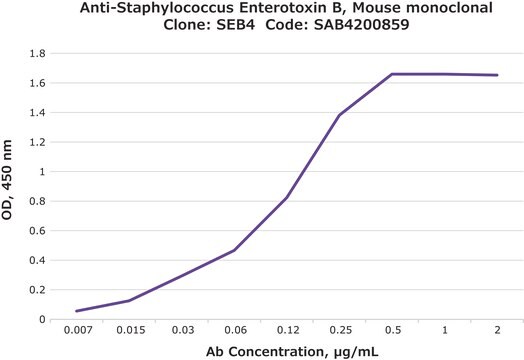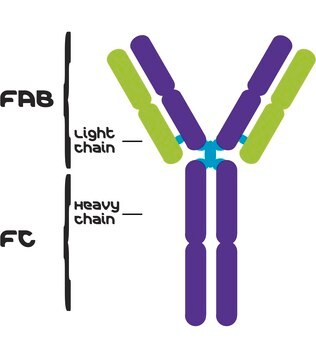SAB4200853
Anti-PBP2a of MRSA antibody, Mouse monoclonal
clone 38, purified from hybridoma cell culture
Sinônimo(s):
Anti-Beta-lactam-inducible penicillin-binding protein 2a
About This Item
Produtos recomendados
forma do anticorpo
purified from hybridoma cell culture
Nível de qualidade
tipo de produto de anticorpo
primary antibodies
clone
38, monoclonal
forma
liquid
concentração
~1 mg/mL
técnica(s)
immunoblotting: 0.5-1 μg/mL using whole recombinant PBP2a protein
Isotipo
IgG1
Condições de expedição
dry ice
temperatura de armazenamento
−20°C
modificação pós-traducional do alvo
unmodified
Descrição geral
Especificidade
Aplicação
Ações bioquímicas/fisiológicas
forma física
Armazenamento e estabilidade
Exoneração de responsabilidade
Não está encontrando o produto certo?
Experimente o nosso Ferramenta de seleção de produtos.
Código de classe de armazenamento
12 - Non Combustible Liquids
Classe de risco de água (WGK)
WGK 1
Ponto de fulgor (°F)
Not applicable
Ponto de fulgor (°C)
Not applicable
Certificados de análise (COA)
Busque Certificados de análise (COA) digitando o Número do Lote do produto. Os números de lote e remessa podem ser encontrados no rótulo de um produto após a palavra “Lot” ou “Batch”.
Já possui este produto?
Encontre a documentação dos produtos que você adquiriu recentemente na biblioteca de documentos.
Nossa equipe de cientistas tem experiência em todas as áreas de pesquisa, incluindo Life Sciences, ciência de materiais, síntese química, cromatografia, química analítica e muitas outras.
Entre em contato com a assistência técnica








